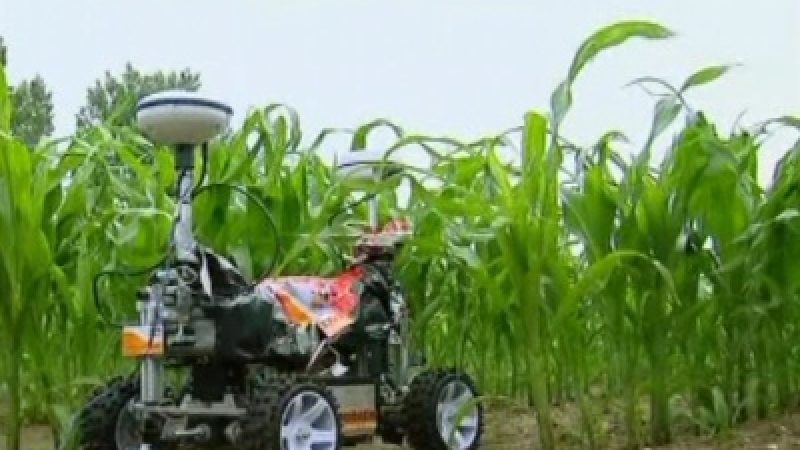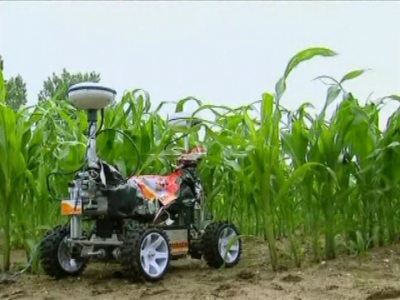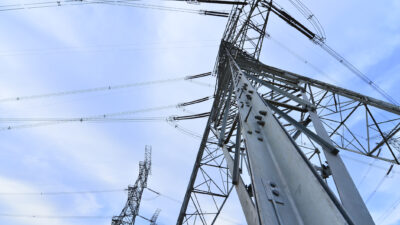
Netherlands: Farming Robots Have a Field Day

Tractors and other large, motorized machines are a common site on today’s farms.
But a swarm of small robots could quite possibly replace these agricultural giants in farming of the future.
Wageningen University Agricultural Professor Eldert Van Henten thinks small machinery and robots are more efficient.
[Professor Eldert Van Henten, Wageningen University]:
„We can reduce the amount of chemicals we use by the very precise application and by doing so, we will also reduce emissions and residuals of chemicals on food.“
Putting theory into practice, students and engineers held a Field Robot Event at the Wageningen University campus last month.
They tested small, driveable machines averaging between 50 to 80 centimeters in width and no more than 40 centimeters in height. Cameras, sonar, infrared and GPS sensors helped the machines steer in the right direction
The robots can distinguish between good and bad plants. They are designed to direct a detergent spray on weeds with such high precision that they avoid touching the crop itself.
The Field Robot Event tested the tiny machines’ ability to navigate and detect weeds.
[Professor Eldert Van Henten, Wageningen University]:
„What we see is that currently tractors are already using auto-steering and GPS so in a way we are supporting human labor with technology. The next step might be that the farmer is supervising one or two additional tractors, still having supervision and then further future might be that robots are truly autonomous on the field.“
It could take up to 10 or 20 years before micro robotic farming becomes a reality.
 (NTDTV)
(NTDTV)



























vielen Dank, dass Sie unseren Kommentar-Bereich nutzen.
Bitte verzichten Sie auf Unterstellungen, Schimpfworte, aggressive Formulierungen und Werbe-Links. Solche Kommentare werden wir nicht veröffentlichen. Dies umfasst ebenso abschweifende Kommentare, die keinen konkreten Bezug zum jeweiligen Artikel haben. Viele Kommentare waren bisher schon anregend und auf die Themen bezogen. Wir bitten Sie um eine Qualität, die den Artikeln entspricht, so haben wir alle etwas davon.
Da wir die Verantwortung für jeden veröffentlichten Kommentar tragen, geben wir Kommentare erst nach einer Prüfung frei. Je nach Aufkommen kann es deswegen zu zeitlichen Verzögerungen kommen.
Ihre Epoch Times - Redaktion